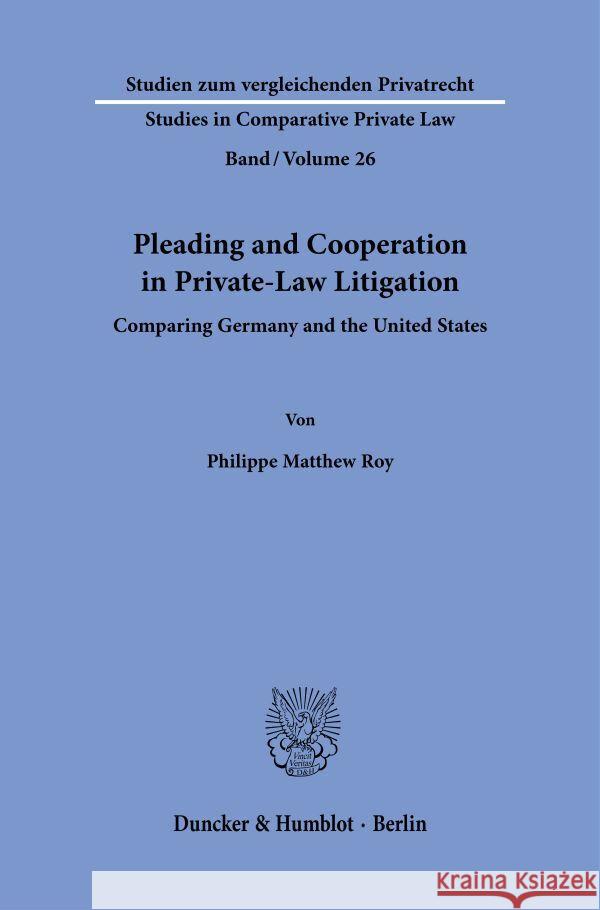Pleading and Cooperation in Private-Law Litigation » książka
Pleading and Cooperation in Private-Law Litigation
ISBN-13: 9783428192632 / Angielski / Miękka / 2024 / 213 str.
The book compares inter alia how civil courts in the United States and Germany balance the burdens on the plaintiff and defendant during the pleading and information-disclosure stages by focusing on pleading requirements, accommodations made to the plaintiff to account for information asymmetry and an examination of testimonial privileges. The initial pleading stage of a civil case addresses important threshold questions before the court proceeds to collecting and evaluating evidence. Access to evidence in the United States through discovery procedures is much broader than in Germany and the pleading standard in federal courts was modified due to criticism of costly and invasive discovery. But pleading that requires more than notice to the defendant imposes a higher burden on the plaintiff. The degree to which civil procedure demands cooperation from civil defendants in the form of document and testimonial disclosure likewise reflects broader value judgments about the appropriate burdens on the parties in litigation. Using the ideal types of legal formalism and legal realism, the author examines the jurisprudential underpinnings for differences between German and U.S. approaches to pleading and information-disclosure. The author concludes that important procedural principles and longstanding practices account for significant differences in pleading and cooperation rules; these rules favor defendants in Germany while generally tending to favor plaintiffs in the United States.
The book compares the requirements courts impose on civil plaintiffs pleading their cases, as well as the obligation of the other parties to the suit to participate in the proceedings by way of information disclosure. Before defendants are compelled to cooperate in civil proceedings, the court must analyze the sufficiency of the plaintiff's complaint in both countries. The procedure for finding the pleadings sufficient and moving to evidence evaluation differs significantly in both countries. These differences are due, in large part, to differences in underlying jurisprudential values. In the United States, »the public has a right to every man's evidence«, while in Germany an important principle counsels that no defendant is obliged to provide the plaintiff with the material needed to prevail in court. As a consequence, differences with respect to cooperation and testimonial privileges are also reflected in pleading practices in both countries.











